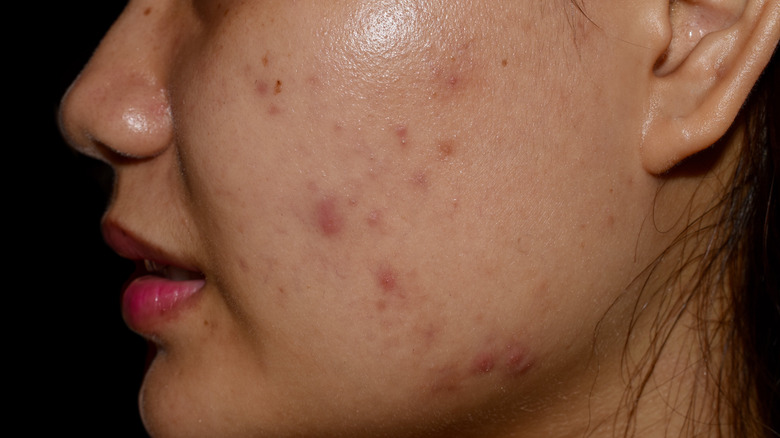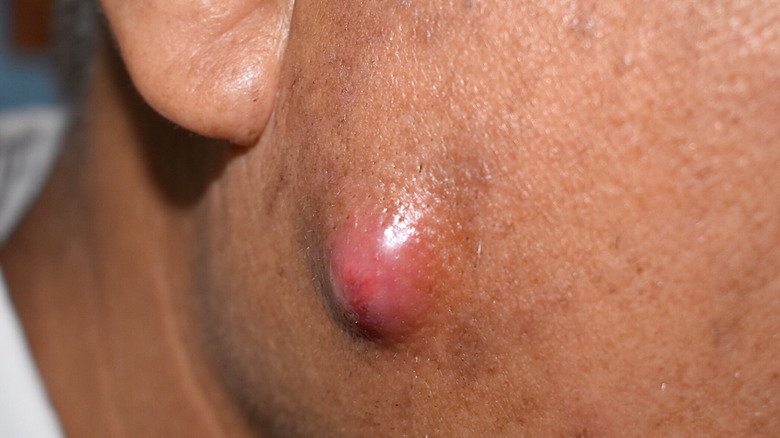How To Treat Painful Nodular Acne
Acne is a nuisance on the best of days and extremely painful on the worst days. In particular, nodular acne can be intensely painful and difficult to treat, depending on the severity (per Byrdie). Unlike surface-level whiteheads and blackheads, nodular acne forms deep below the skin. The inflammation that arises as your body tries to fight the bacteria and dead skin cells trapped in your pores can make the discomfort and pain even more dreadful. In fact, nodular acne can form so deep within a pore that it can interact with nerves, which is often a cause of severe pain. Because the bumps under the skin are far beneath the surface, they typically don't surface and turn into whiteheads that can be easily drained. This makes treating nodular acne quite difficult.
The term "nodular acne" is often mistakenly used interchangeably with cystic acne, but they are in fact two different conditions, according to Healthline. Cystic acne produces cysts — also called blind pimples — that have the appearance of boils. They are typically red in color because of the surrounding inflammation. Pores clogged as a result of cystic acne are often softer than nodular acne because they tend to contain pus and eventually burst. In comparison, nodular acne is so far beneath the skin's surface that the bumps become hard and stubborn, thus lasting for weeks or months.
Treating nodular acne
When it comes to treating nodular acne, it's best to see a dermatologist, per the Cleveland Clinic. There are prescription medications — both oral tablets and topical ointments — that can ease the pain and help the infected pore clear the trapped debris. Topical options include salicylic acid, benzoyl peroxide, and retinoids. While these ingredients can be purchased over-the-counter, a dermatologist can give you prescription-strength solutions that will fight the nodular acne much faster. For oral medication, your dermatologist may give you a prescription for isotretinoin, a retinoid with high concentrations of vitamin A, or antibiotics like tetracycline. If a nodular bump is especially painful or swollen, your dermatologist might recommend a cortisone injection to minimize inflammation and ultimately make the bump smaller. Since cortisone is a steroid, it can decrease the amount of time it takes for the nodular bump to resolve.
Never pick at a nodular acne bump or try to pop it, as doing so can result in acne scarring (per MedicalNewsToday). You can try home remedies, like applying diluted apple cider vinegar, which has antibacterial properties. Olive oil is also known to have antioxidants that can fight toxins, and it can be applied to the area around the nodular bump. Prevention of nodular acne can be achieved by reducing stress. It's also important to stick to a regular skincare routine that involves using a gentle cleanser to wash your face twice a day.


